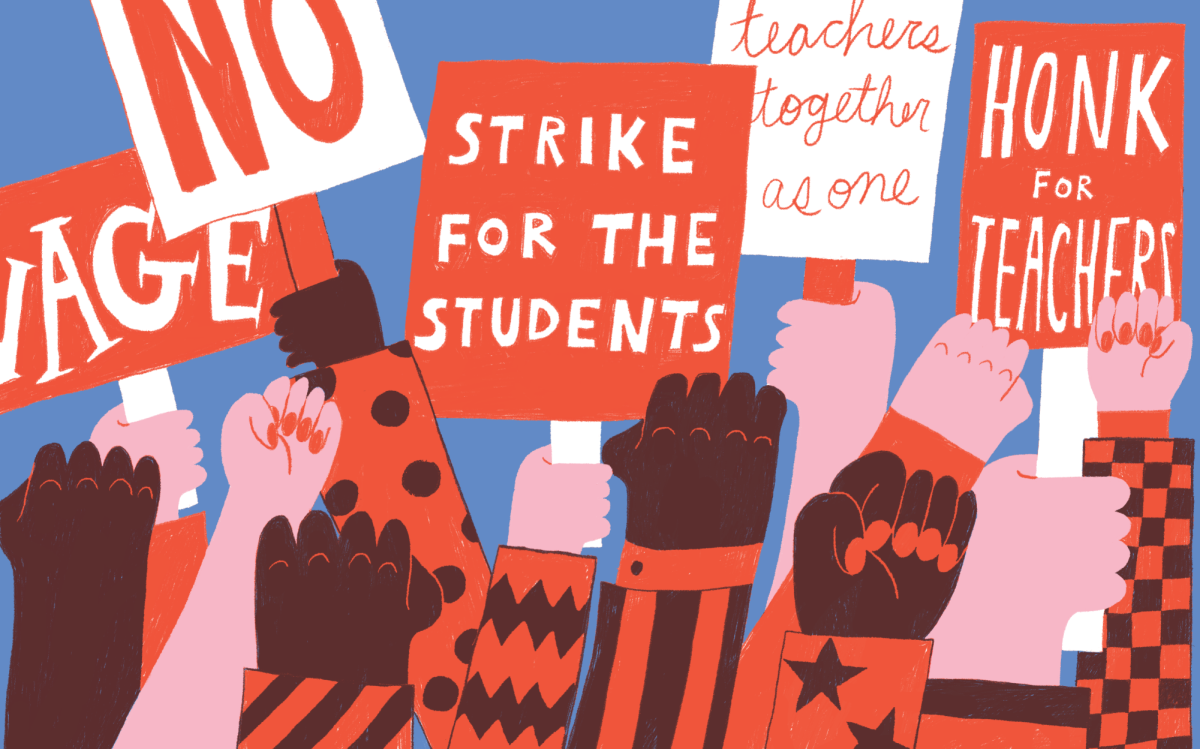Labor unions have existed in the United States since the late eighteenth century. More specifically, in 1794, when the Federal Society of Journeymen Cordwainers emerged. This Philadelphia-based group consisted of leather workers and cobblers who desired higher wages for their lucrative shoemaking (cordwainer) trade. Although union and strike legislature was not yet established at this time, these societies proved effective and workers eventually received a wage increase in 1798.
Why do we need them? With a history of more than 200 years in the making, unions have become a valuable channel for public employees to band together and voice their concerns over their wages, hours, and benefits. Many inequalities still exist within the workplace such as wage gaps, lack of health benefits, and restrictive paid-time off, and labor unions serve the purpose of mitigating, if not eliminating, these poor conditions.
How do unions achieve their success? One of the most impactful ways unions can achieve their goals is through a labor strike. If representatives are unable to collectively bargain and negotiate with the employer, the executive board can vote in favor of enacting a strike or ceasing to work for the employer for a period of time. The influx of strikes in recent years, especially those orchestrated by teacher unions, have captured the attention of the public – even those who do not work within education. Massachusetts educators, specifically, have been withholding their labor at a growing rate.
This past January, the teachers and staff of Newton Public Schools (Newton Teacher’s Association) voted to go on strike starting the 18th after working without a contract since August 2023. The school committee had failed to meet the needs and wants of educators who were concerned with the district’s underfunding and unmanageable class sizes. More importantly, they desired higher pay for both teachers and paraprofessionals, as well as more expansive benefit packages.
With no revised contract in sight, this meant schools across the district were forced to close for close to two weeks with no staff in classrooms to instruct. On top of rushing to develop a contract suitable for Newton educator needs, the school committee was challenged with figuring out how students would make up the days lost. The ideas include, but were not limited to, school until June 28th, through April vacation, and on rotating weekend days! Additional problems arose in light of the labor strikes, as high school seniors were especially concerned with how they would be able to send in their mid-year transcripts for colleges they’re applying to.
Finally, the Newton school committee cracked under the pressure and news of a tentative contract broke in early February. The contract, which includes salary increases for all staff, a 60-day parental leave policy, and 15 newly added days of FLMA, is set to go in effect on September 1st, or the start of the 2024-2025 school year. The committee still needs to approve the contract, and while it remains a victory for educators across the town, there is a hefty price to pay. In fact, teacher strikes in Massachusetts are illegal and the Newton Teacher’s Association is now expected to pay a total of $625,000 in fines to the district court by Monday, February 5th. In terms of students making up the days lost learning in the classroom, the school committee has also voted to eliminate four days during February vacation in order to make sure students aren’t attending school in July. In addition, earlier this week, Newton was one of the few districts who did not declare a snow day for the approaching nor-easter in order to ensure students were not missing yet another day of school.
Since 2022, there have been six teacher unions in the state to go on strike – Brookline, Malden, Haverhill, Woburn, Andover and Newton. “As long as the teachers here at Abington don’t go on strike, they can have their unions,” said one student, who chooses to remain anonymous. Another added, “I don’t know a whole lot about them, but I support teacher unions. I think it’s fair for them to use their voice and express their concerns over what happens in their classrooms.”
The teachers and staff at Abington Public Schools belong to the Abington Teachers Association (the town’s teacher union) and have experienced their own difficulties in the past year regarding contract negotiation. Taren Whitman, president of the organization and teacher at AMS, chose to make the following statement regarding the importance of teachers’ unions:
“Teachers’ unions are incredibly important to ensure that we have a voice and a hand in creating a work environment where our work and time is valued, respected and compensated fairly. This more importantly allows teachers to create a more conducive environment for our students to learn. When teachers are supported by the community as a whole, our students reap all of the benefits.”
It is understandable why many individuals who aren’t affiliated with a union (students, parents, and town locals) see organizing and strikes as disruptive for those to show up to class each morning, or unnecessary – as most strikes call for sign picketing on sidewalks near busy intersections. Yet, it is crucial to educate those who remain unaware of the shortcomings in the education field and continue to criticize the “ignorant” employees for fighting for fairness. Strikes, no matter the profession, may not be ideal for those who are involved and create additional problems, but this disorder is purposely used to grab the attention of higher authorities and administrators, who would rather look the other way and ignore the problems plaguing the workplace.

